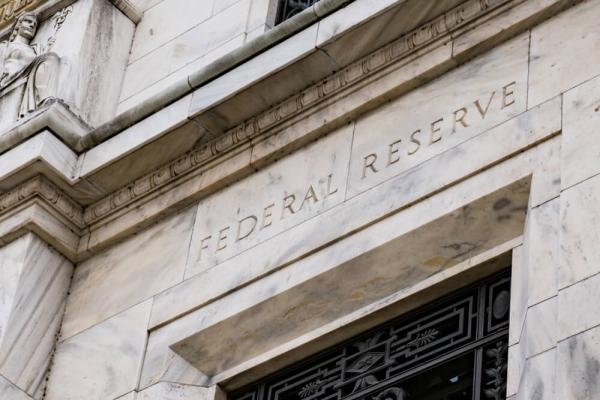“How can we afford it?” That’s the perennial question that confronts anyone who dares to propose progressive policy changes. A recent example is CNN’s Jake Tapper grilling congressional candidate Alexandria Ocasio-Cortez over whether tax money could fund items on her platform such as Medicare for all, a federal job guarantee, and the cancelation of student loan debt. For those who are religious and politically progressive, this question is particularly challenging. While many are good at articulating the moral imperative of providing health care to all or protecting the environment, they can stumble on the issue of economic feasibility. So, when I was told about an economics conference in New York City that might connect to this topic, I was intrigued.
Rethinking how money works
The Second International Conference of Modern Monetary Theory, held Sept. 28-30 at The New School, did not feel like a traditional economics conference. Its 430-plus attendees comprised several economists and policy wonks, but also lawyers, activists, even faith leaders. They gathered to discuss ideas emerging from a relatively new economic school of thought known as Modern Monetary Theory, or MMT — a concept that turns conventional economic thinking on its head, and the implications are revolutionary.
MMT argues that government spending does not face the same constraints as a regular household budget. When we — regular people — want to buy something, we have to spend our existing money or get a loan. MMT points to the fact that the government doesn’t tax in order to raise revenue to then spend. It simply spends what it authorizes. Moreover, countries with a sovereign, fiat currency — which includes the U.S. — cannot run out of money.
According to MMT, the limits are not in our government’s ability to spend money, or even in the deficit per se, but in inflationary pressures and resources within the real economy. Can the government spend trillions and trillions of dollars on health care and infrastructure? Technically, there’s nothing stopping it. The question is whether there’s enough available labor and resources to carry out such projects without raising inflation. And governments with non-sovereign currencies or foreign debt face considerably harder restraints.
MMT’s perspective may sound outlandish, but it is — on some level — descriptively true. Even mainstream economists, who take issue with MMT, accept some of its fundamental premises but disagree on details regarding the deficit and inflation. Its framework can help explain the vertigo many of us can feel when we hear politicians claim that the government doesn’t have enough money to spend on public programs while it simultaneously increases military spending and applies tax cuts that raise the federal deficit.
To mainstream economics departments, MMT economists remain heterodox outsiders. Yet, they are anything but fringe. After starting off as a handful of interlocutors crying out into the wilderness for several decades, MMT economists are now receiving press in places like NPR and The Nation; they are getting contacted not only by insurgent political candidates but by top-ranking Democrats, foreign finance ministers, and heads of financial institutions in both Washington, D.C., and on Wall Street. Economist Stephanie Kelton, perhaps MMT’s most visible popularizer, is a former adviser to Bernie Sanders and the Democratic staff on the Senate Budget Committee; she’s also provided advising to Rev. William Barber’s Poor People’s Campaign.
Some believe that MMT’s brand of economics raises important questions that spill over into religion and metaphysics. That’s what Scott Ferguson, a professor in the Department of Humanities and Cultural Studies at the University of South Florida, argues in his book Declarations of Dependence: Money, Aesthetics, and the Politics of Care.
“I think people think that money is a finite, private, decentralized exchange relationship between individuals and firms,” Ferguson told me over a lunch break at the conference. “And then because this is such an austere, exclusionary, and unjust way of conceiving and relating to … the money relationship, we've been intensely ambivalent to money. We know we need it, but we associate it with everything that's bad in the world: greed, corruption, and erosion of social values.”
Ferguson thinks our contemporary debates over the public utility of money relate to debates that stretch all the way back to metaphysical and theological disagreements about money between Thomists and Franciscans in the late Middle Ages. For him, what we’ve lost today is an ability to understand how money symbolizes the way in which people are connected. Ferguson sides with the Thomists; money is a form of mediation. While money has been used for evil, he emphasizes that it can be "an instrument of collective uplift and social bonds.”
“I want to be clear that this is a moral claim. It is morally unacceptable to maintain unemployment for price stability,” said Pavlina Tcherneva, economist and research scholar at the Levy Institute, on a panel titled “The Future of Job Guarantee Advocacy.” Another distinguishing mark of MMT economists is their unwillingness to separate moral considerations from economic debates. How the government chooses to spend, or not spend, money in the economy is just as much a matter of moral priority as it is one of fiscal responsibility.
MMT appears to have two components: On one side, it attempts to be descriptive, unpacking how our monetary system works. On the other side, it is unabashedly prescriptive, suggesting left-leaning policies that flow from its analyses. In a way, this double-movement makes sense. If the government is not as broke as some say it is, then the inability to invest in things like public education is due to a lack of political will and not some natural law written into the fabric of economic reality.
Revisiting Coretta Scott King’s idea
The major policy proposal discussed at the conference was the federal job guarantee. Proponents caution: No one would be forced to work. The private sector would stay intact. But whoever was unemployed, underemployed, or so desired, would have the opportunity to take a government-funded job that would be administered by local governments and agencies; a supplementary basic income would support those unable to work.
Proponents argue that the jobs created by this plan would be diverse, structured according to local needs and input, and would include a high threshold of pay and benefits that would put pressure on all employers to raise their standards for workers. Raúl Carrillo, a lawyer, a founder of the Modern Money Network, and conference organizer, encouraged people to see FJG is as an alternative job stimulus to Amazon HQ2: a way to create more jobs that, advocates argue, are actually high-quality jobs and better for local economies.
The idea of a federal job guarantee was once popular among left-leaning religious leaders in the United States. Coretta Scott King’s rich legacy on this particular issue, which included co-founding the National Committee for Full Employment/Full Employment Action Council in 1974, was invoked by many at the MMT gathering.
While the federal jobs guarantee precedes MMT, some say MMT’s framework breathes new life into the idea — it bypasses old political deadlocks because it doesn’t see progressive taxation as the only way to fund such public programs.
During Coretta Scott King’s era, the idea of a job guarantee was seen as one way to combat racial discrimination. Today, this proposal is also being related to other issues such as gender inequality and climate change.
“I think it opens up debate,” Donatella Alessandrini, professor at Kent Law School, said. “… where we can reassess the distribution of all labor, and necessarily care labor.” Speaking on a panel titled “The Future of Job Guarantee Advocacy,” she argued that — historically — various forms of care labor, including labor in the home, have been gendered and devalued.
Journalist Kate Aronoff explained how a job guarantee proposal is the start of a new conversation about fighting climate change. A “green job guarantee” that puts millions to work while combatting climate change might be one of the things we’ll need to save the planet. An increasing amount of reports demonstrate that aggressive measures will be needed to avert major crises resulting from climate change. This will require not only a transformation of the world economy, but also lots of work.
Religion and money
“I came to this issue after wrestling with the foreclosure crisis in Prince George's County for the past 10 years,” Rev. Dr. Delman Coates told me. “My journey started in the aftermath of the financial crisis, seeing an uptick in the number of people coming to my church needing assistance for foreclosures.”
Currently a pastor at Mt. Ennon Baptist Church in Clinton, Md., Coates grew up in a small church in the inner city of Richmond, Va., surrounded by two housing projects and a local jail. He’s had a long journey of connecting faith and social justice. After much study, Coates said he came to the realization that “our monetary system is at the root cause of most of the social and economic issues we face in society today.” This led him to an interest in learning more about modern monetary theory. What he found: "Oftentimes faith leaders tend to be focused on personal finance and financial literacy in the household, but they have not been drawn into the whole understanding of macroeconomics."
“If we literally change the way we think about money,” Coates said, “we can change the world.”
Dr. Tomeka Scales is the program director of an organization called Our Money that she helped to start with Coates. Scales says that she’s not necessarily an “MMTer” but she wants to expand who gets to participate in these conversations. “It isn't just for economists or experts. I think that's oftentimes what kind of deters people.”
While some religious people have become interested in MMT, MMT also has some followers thinking about religion. Nathan Tankus describes himself as an agnostic Jewish kid from New York who became interested in religion and theology as a result of MMT. Currently a student at John Jay School of Criminal Justice and a research scholar at Modern Money Network, he says that reading Debt: The First 5,000 Years by David Graeber helped him to appreciate how questions of money and debt are fundamentally tied to religion.
“Beyond arguments over whether we can afford X or Y spending program,” Tankus said, “at a deeper level what you get to with a lot of people is a question of whether certain human beings deserve to be redeemed. That’s especially the case in these questions about whether people have a legal right to have a job.”
The root of all evil?
I don’t know what will become of MMT. Will it influence successful legislation? Is it more than a heterodox fad? We shall see. What I do know is that those discussing modern monetary theory today raise fundamental questions about money and morality that will not go away anytime soon — as long as our species exists, and climate change or some other self-inflicted wound doesn’t wipe us out. Money touches every aspect of our lives. It’s the fundamental unit of the economy.
“For the love of money is a root of all kinds of evil,” states 1 Timothy 6:10. Christian interpretations of money seem to run in two extremes. Either money is a sign of God’s blessing or it’s inherently unjust. For some, money is about maximizing private prosperity. For many progressive Christians, money is a guilt-producing substance and the cause of injustice in the world. We need it to survive, but it’s evil. The only good thing that can happen with money is to have individuals give most of it away through philanthropy or charity. But what if money is more than this? What if it can be something else?
“It's not money that is at the root of all evil,” Coates said. “It's the love distortion and misunderstanding of money that's at the root of all evil.”
Got something to say about what you're reading? We value your feedback!







